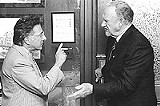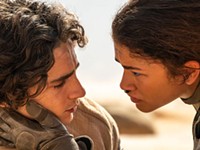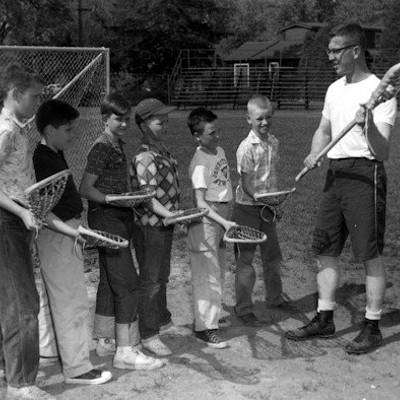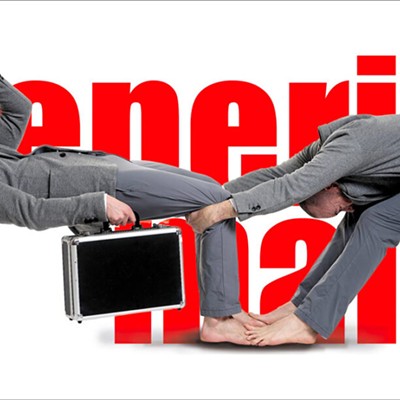[
{
"name": "500x250 Ad",
"insertPoint": "5",
"component": "15667920",
"parentWrapperClass": "",
"requiredCountToDisplay": "1"
}
]
In contemporary popular fiction and cinema, John Grisham is to the dusty courtroom what Stephen King is to the dank basement. If one deals with ghosts and monsters, the unspeakable fears lurking in the depths of the soul, the other probes the more familiar and, in our litigious time, the more palpable anxieties of the here and now, the familiar and plausible surfaces of everyday life. Although the number of screen translations of his works is unlikely to surpass King's movies, in general Grisham benefits from more intelligent adaptations, better scripts and directors. All of that results, as with Runaway Jury, in considerably more successful films.
One source of that success may originate in the education of the public in the intricacies of the American legal system. The media, especially cable television, both create and feed an apparently voracious appetite for almost anything involving criminal justice --- fictional and nonfictional cop shows, lawyer shows, Court TV, the continuous slavering over high-profile cases on the news channels, documentaries about forensic medicine, and all those comically bogus FBI profilers on the talking head shows, who earnestly and minutely describe suspects, even though they obviously couldn't catch a cold on a wet night. No wonder Grisham's books and the movies based on them win wide audiences and big bucks.
In Runaway Jury the familiar courtroom drama takes some rather complicated paths to its verdict. It concentrates, as its title implies, on the jury, and moves much of its action outside the courthouse itself. Instead of focusing on the attorneys arguing a particular case in the usual manner, the film deals with the work of jury consultants, who advise lawyers about selecting the right --- i.e., cooperative and sympathetic --- jurors to decide on their cases. In the process of revealing the methods of a hotshot consultant, Rankin Fitch (Gene Hackman), the movie also suggests the supremacy of the adviser over his lawyer client, his power to discern the personalities of the jurors and manipulate them in any direction he chooses, so that ultimately he decides the outcome of a case.
Some of the most fascinating sequences in the picture show the actual methods of the brilliant and entirely unscrupulous consultant, hired to defend a New Orleans gun manufacturer in a civil suit over the sale of an assault weapon to a man who went berserk and shot up a stockbroker's office. Reiterating his cynical belief that everybody conceals some dirty secret, Hackman employs extensive research, all sorts of unethical video and audio surveillance, illegal wiretaps, and even strong-arm tactics to find out every potential juror's history and vulnerability. He and his staff exploit every weakness they can discover, corrupting, blackmailing, and intimidating their way to the verdict they are hired to deliver.
He encounters an unexpected problem in the person of John Cusack, who plays a juror with his own agenda and who, with his partner (Rachel Weisz), conducts some skilled manipulation of his own. Weisz and Cusack offer to deliver the jury to Hackman for the paltry sum of 10 million dollars. When the desperate attorney for the plaintiffs (Dustin Hoffman) discovers that Hackman has somehow prevented his star witness from testifying, the couple makes him a similar offer. Much of the subsequent action of the film involves a most complicated cat-and-mouse game. The couple plays the two sides against one another, and Hackman and his crew attempt to hunt them down.
While even the best courtroom dramas and legal thrillers usually settle into an essentially static theater in the round, with the usual careful staging, obvious dialectic, well-orchestrated patterns of triumphs and defeats, and predictable results, Runaway Jury maintains a constant flow of action and an excitement. With American film's typical mastery of process, the movie makes the sheer mechanics of the consultant's work utterly fascinating. The director's rapid cuts, the skillful use of montage, the frequent intercutting of two or three separate and parallel lines of action, the absolute mastery of rhythm through both filming and editing create a terrific sense of intensity and a relentless pace. The movie never lets up, never cheats, hardly even pauses.
Needing twelve people on the jury, along with the attorneys and the courtroom personnel, such movies usually display the talents of a whole ensemble of actors. In the case of Runaway Jury, however, a group of accomplished performers, all stars in their own right, add further luster to the large cast. Everybody expects outstanding work from actors like Dustin Hoffman, John Cusack, and Gene Hackman, and nobody will be disappointed in their performances here, even if Hoffman seems an unlikely Southerner. The supporting players, moreover, show themselves as interesting and individual as the stars.
Not surprisingly, even among a group of highly accomplished performers, Gene Hackman simply dominates the movie. His immense and cheerful cynicism, his absolute sense of command, and his sheer presence make him a compelling figure in every scene. It is a tribute to the other actors that they can hold their own when they must share the screen with him. He demonstrates one of the several elements that makes Runaway Jury one of the best legal thrillers in years, a tight, seamless connection linking actors, script, direction, and meaning, most of it embodied in Hackman, one of the outstanding actors in a great generation of actors.
Runaway Jury, starring Gene Hackman, Dustin Hoffman, John Cusack, Rachel Weisz, Bruce Davison, Bruce McGill, Nick Searcy, Jeremy Piven; based on the novel by John Grisham; screenplay by Brian Kippleman, David Levien, Rick Cleveland, Matthew Carpenter; directed by Gary Fleder.
You can hear George and his movie reviews on WXXI-FM 91.5 Fridays at 7:20 a.m., rerun on Saturdays at 8:50 a.m.
Latest in Movie Reviews
More by George Grella
-
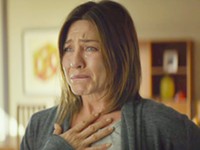
Film Review: "Cake"
Jan 26, 2015 -
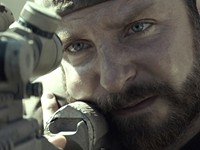
Film Review: "American Sniper"
Jan 19, 2015 -
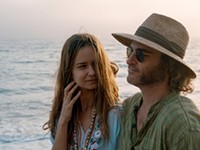
Film Review: "Inherent Vice"
Jan 12, 2015 - More »
